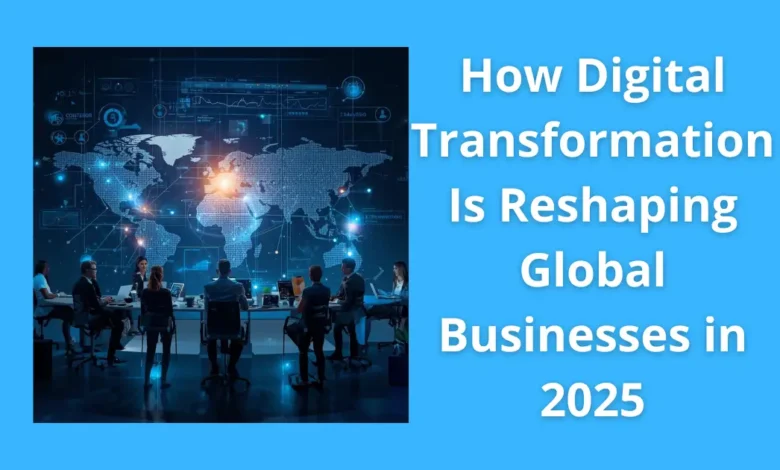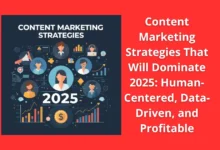How Digital Transformation Is Reshaping Global Businesses in 2025

Digital Transformation is reshaping global businesses in 2025, driving innovation, efficiency, and competitive advantage across industries.
table of contents
How Digital Transformation Is Reshaping Global Businesses in 2025
The world of business is evolving at an unprecedented pace, and 2025 marks a significant milestone in the era of digital transformation. Companies that once relied solely on traditional processes are now embracing digital tools, cloud computing, artificial intelligence, and data-driven strategies to remain competitive. This transformation is not merely about technology adoption; it is about fundamentally reshaping business models, workflows, and customer experiences.
Digital transformation enables organizations to respond faster to market changes, personalize offerings, and enhance operational efficiency. From startups to global enterprises, the shift towards digital-first strategies is no longer optional—it is essential for survival and growth.
The Future of Marketing Automation: How AI Is Redefining Customer Engagement in 2025
The Key Drivers of Digital Transformation in 2025
- Advanced Technology Adoption
- Cloud computing, AI, and machine learning allow businesses to automate operations, gain predictive insights, and optimize resources.
- Companies can analyze large datasets to make informed strategic decisions faster than ever before.
- Customer-Centric Innovation
- Businesses are redesigning customer experiences using digital platforms, apps, and personalized services.
- The focus is on seamless interactions, reducing friction, and increasing engagement and loyalty.
- Agile Operations and Workforce
- Remote work and digital collaboration tools are enabling distributed teams to function efficiently.
- Agile methodologies ensure faster response to changes and iterative improvement of processes.
- Data-Driven Decision Making
- Organizations leverage analytics to guide strategy, forecast trends, and identify growth opportunities.
- Real-time dashboards and KPIs allow executives to make proactive decisions rather than reactive ones.
- Enhanced Security and Compliance
- As operations become digital, robust cybersecurity measures protect sensitive data and maintain trust.
- Compliance with global regulations becomes critical for multinational businesses.
Real-World Examples of Transformation
- Retail: Companies like Walmart and Alibaba are using AI and predictive analytics to optimize inventory and personalize shopping experiences.
- Finance: Banks are integrating digital payment platforms, automated customer support, and fraud detection systems.
- Healthcare: Telemedicine, AI diagnostics, and patient data management systems are revolutionizing healthcare delivery.
These examples illustrate how digital transformation is not limited to a single industry but is a universal strategy for efficiency, growth, and resilience.
Challenges Businesses Face in the Digital Era
- Resistance to change among employees and management.
- High initial investment costs in technology and training.
- Data privacy and cybersecurity concerns.
- Keeping up with rapid technological advancements and market competition.
Successful businesses address these challenges with a clear roadmap, phased adoption, and continuous training.
Conclusion
Digital transformation in 2025 is more than adopting new technologies—it is about redefining the way businesses operate, engage with customers, and compete globally. Organizations that embrace digital-first strategies, leverage data intelligently, and focus on innovation will lead their industries, while those that hesitate risk falling behind.
The future of global business belongs to those who can integrate technology, agility, and customer-centric approaches into their core operations seamlessly.
FAQ
Q1: What is digital transformation?
Digital transformation is the integration of digital technology into all areas of a business, fundamentally changing how it operates and delivers value to customers.
Q2: Why is digital transformation critical in 2025?
With rapid technological advancements and market competition, businesses must adopt digital strategies to stay efficient, innovative, and competitive.
Q3: Which technologies drive digital transformation?
Key technologies include cloud computing, artificial intelligence, machine learning, big data analytics, IoT, and digital collaboration tools.
Q4: Can small businesses benefit from digital transformation?
Absolutely. Digital tools allow small businesses to compete globally, improve customer experience, and optimize operations efficiently.
Discover more from Feenanoor
Subscribe to get the latest posts sent to your email.













